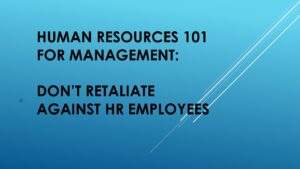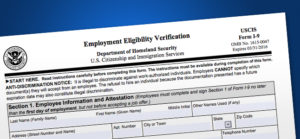 After I posted my last article on arbitration agreements and the “waiver by default” of jury trial rights, the Texas Supreme Court issued an opinion on March 9, 2012, again reaffirming how easily employers can force workers into giving up their legal rights. In the case of In Re Frank Ken Motor Company, the Plaintiff, Steven Valdez, worked for a car dealership for over twenty-eight years. In April 2008, his employer required Valdez (and assumedly all employees) to sign a “Mutual Waiver of Jury Trial”, in which employees agreed to waive their right to a jury trial if any legal claims were brought. Less than a year after signing the jury waiver, Valdez was terminated. He later alleged age discrimination, filed a lawsuit and sought a jury trial. The employer argued that Valdez waived his right to a jury trial as a result of signing the agreement. Valdez argued, among other things, that he was coerced to sign the agreement. Specifically, Valdez alleged that a supervisor told him that he would be terminated if he didn’t sign the agreement. The trial court ruled in Valdez’s favor on this waiver issue, and the Ft. Worth Court of Appeals refused to hear the appeal.
After I posted my last article on arbitration agreements and the “waiver by default” of jury trial rights, the Texas Supreme Court issued an opinion on March 9, 2012, again reaffirming how easily employers can force workers into giving up their legal rights. In the case of In Re Frank Ken Motor Company, the Plaintiff, Steven Valdez, worked for a car dealership for over twenty-eight years. In April 2008, his employer required Valdez (and assumedly all employees) to sign a “Mutual Waiver of Jury Trial”, in which employees agreed to waive their right to a jury trial if any legal claims were brought. Less than a year after signing the jury waiver, Valdez was terminated. He later alleged age discrimination, filed a lawsuit and sought a jury trial. The employer argued that Valdez waived his right to a jury trial as a result of signing the agreement. Valdez argued, among other things, that he was coerced to sign the agreement. Specifically, Valdez alleged that a supervisor told him that he would be terminated if he didn’t sign the agreement. The trial court ruled in Valdez’s favor on this waiver issue, and the Ft. Worth Court of Appeals refused to hear the appeal.
The Texas Supreme Court disagreed and ruled in favor of the employer, rationalizing that since Valdez was an at-will employee (an employee who can be terminated for any reason that is not unlawful), and his employer had the legal right to fire him for refusing to sign the agreement, Valdez could not have been “coerced”.
Anyone who practices employment law in this state was not surprised by the Texas Supreme Court’s decision. The court has been unabashed in its pro-business stance for many years, and has hardly been a profile in courage in protecting worker rights or respecting jury verdicts. What is bothersome about this opinion, aside from the decision itself, is the court’s sterile approach in addressing coercion of employees in the workplace. Black’s Law Dictionary defines “coercion” in the following manner:
Compulsion; force; duress. It may be either actual, (direct or positive.) where physical force Is put upon a man to compel him to do an act against his will, or implied, (legal or constructive) where the relation of the parties is such that one is under subjection to the other, and is thereby constrained to do what his freewill would refuse. (emphasis added).
Is not the threat of taking away one’s employment, their source of income, health insurance and other benefits, coercion? The Court’s opinion seems indifferent towards the realities that Mr. Valdez and countless others face in the workplace. The economy is poor. Jobs are scarce. If your boss tells you to sign a document or face termination, nearly all workers will comply, from entry level workers to the highest level management employees. By any other name, this type of conduct by an employer is economic intimidation. Yet, according to the state’s highest court, such conduct is not coercion, and therefore insufficient to nullify the involuntary waiver of constitutionally protected rights.
Fairness is what justice really is.
— Potter Stewart, Supreme Court Justice (1915-1985)





